Hardgainer, Or Poor Diet & Training? – How To Build Muscle Naturally
Build Muscle Naturally
Hardgainer, Or Poor Diet & Training? – How To Build Muscle Naturally
(Click on Links in Blue for More Info)
A term you often hear in gyms and in many discussions on building muscle is ‘hard gainer’. This is used to describe those individuals who find it difficult to make significant gains in muscle mass in response to a resistance training programme. It is important to note from the offset that like many other physical attributes, such as strength or endurance, some people do have a naturally greater ability to gain muscle in response to training than others. You only need to look at the line up in any major pro bodybuilding competition to see examples of such people. We could all engage in the same diet, training and supplement strategies as the Olympia competitors, but very few will have the genetics to achieve similar results. That said, this does not mean that a regular, healthy individual without the genetics of a potential Olympia winner cannot gain a substantial amount of muscle with the right approach. This is where we come to the point of this article; many people who fail to achieve their level of muscularity they desire, often resign themselves to being a hardgainer, or to use the technical term, a ‘non-responder’, and settle for gains below what they are capable of or perhaps even cease to train and just give up.
However, with a little thought and a few amendments to your training programme, lifestyle and nutrition plan you could make significantly greater gains.
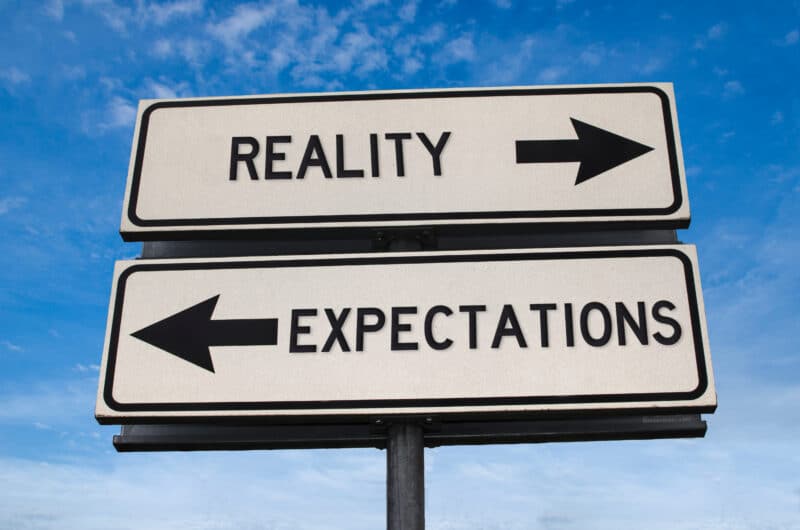
Are your expectations realistic?
A common mistake is to base your expectations on images in the media of bodybuilders and fitness competitors who are in contest condition, which is unsustainable in the long-term, and who may have greater genetic ability to gain muscle and greater training experience. It is also important to realise that many pictures used in the media are manipulated and employ flattering lighting to create the ‘perfect’ image.
As a rule, if you’re new to resistance exercise, you can expect to begin to see an increase in muscle after 15 training sessions or 6–7 weeks, and expect to gain on average 3lbs (1.36kg) of muscle after approximately 3 months of training.
A study involving young athletic men found that a one-year programme of heavy resistance training produced a 20% increase in body mass, most of which was muscle. It is important to note that the rate of muscle gain rapidly plateaus are the first year of training. Athletic women can expect to gain 50-75% of the absolute gains of men in their first year of training.
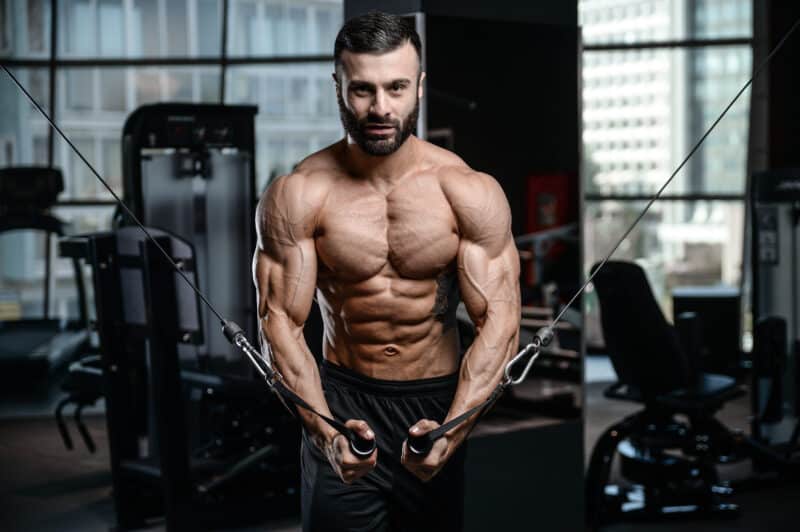
What influences how much muscle you can gain?
Many factors influence how much muscle you can gain and how quickly. These include age, sex, body type and size, genetics, muscle fibre type, training experience, training programme, diet, sleep and levels of muscle building hormones (testosterone, growth hormone).
You can’t do anything about your genetics, sex, age and body type, but you can manipulate other variables such as diet, training sleep and hormone profiles to optimise your muscle gains. While it is beyond the scope of this article to discuss each of these factors in detail, just a brief examination of a number of the most pertinent is often sufficient to highlight an individual’s ‘sticking point’ to muscle growth.
This involves asking the right questions and then taking the appropriate course of action to address any issues that may become apparent.
Let’s look at some examples, starting with your training programme.
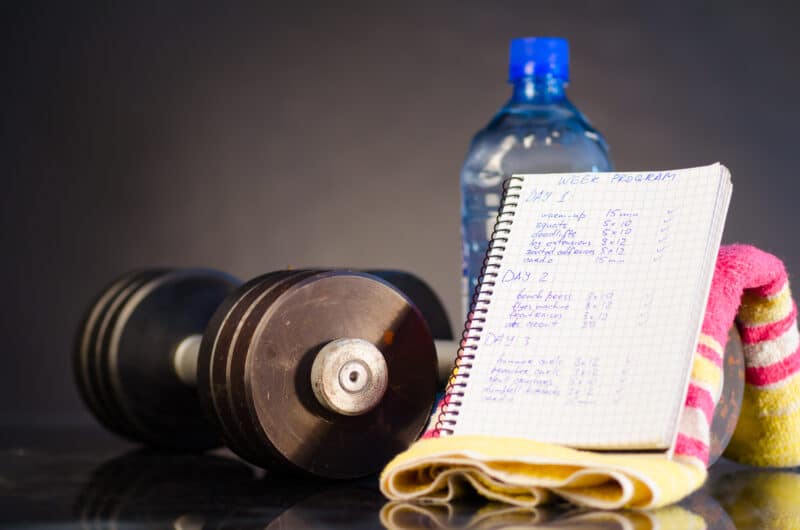
Build Muscle Naturally – Training programme
Designing a resistance training programme to optimise gains muscle mass can be a complex process that involves the careful manipulation of number of acute programme variables and key training principles including loading and volume, exercise selection and order, rest periods, speed of contraction, frequency and overload.
For example, are you selecting the right exercises?
A common mistake is to include too many isolation or body part exercises (e.g., pec flyes, legs extensions) rather than structural or compound exercises, which recruit several muscles and joints to produce the movement, e.g., the bench press, squat, bent-over row and leg press. The advantages of structural exercises for building muscle are that they are time efficient, as you train a number of muscles simultaneously, and they are more effective at increasing strength and the levels of testosterone and growth hormone than isolation exercises.
Is your recovery between sets the appropriate length?
For example, if a rest period is long, e.g., 3-5 minutes, it will allow the completion of the required number of set and reps but will not provide you with the metabolic stress needed to stimulate optimal muscle growth. On the other hand, if it is short, e.g., 30 seconds, it will provide sufficient metabolic stress but is not likely to provide sufficient recovery to allow completion of the volume of work needed to stimulate muscle growth. So, what is the optimal recovery time?
Other questions you need to ask include:
How often should I train?
What order should I perform the exercises in my training programme?
What is the optimal repetition speed for building muscle?
How many sets and repetitions should I perform?
How do I employ the overload and variations principles to my training optimize gains in muscle mass?
Should I train to failure?
This may seem a little daunting, but don’t worry, you can learn the answers to all of these questions and much more about designing the most effective evidence-based muscle building programme by just clicking here:

Build Muscle Naturally – Nutrition
In addition to a well-designed resistance training programme, you also need to ensure that you are consuming the most effective diet to optimise muscle growth. This must not only provide the requisite levels of nutrients and energy to support muscle protein synthesis but also to fuel your workouts and keep you healthy. This is often the limiting factor for an individual’s muscle growth.
For example, common mistake made by those struggling to gain muscle mass is simply not consuming enough energy or calories. Building muscle not only requires the consumption of the right amounts and ratios protein, carbohydrates and fats, but also an increase in daily energy intake to create a surplus above normal daily energy needs. Just maintaining your existing muscle accounts for approximately 20% of your energy intake. Building new muscle then further increases your energy needs. For example, an individual weighing 90kg will need to consume around 3,800 kcal a day or more.
Do you know how many calories per day do you need to consume to optimise muscle growth?
You must also understand how to adjust your ‘macros’. In other words, how much fat, protein, carbohydrate and fat should you be consuming to optimise muscle mass?
How often should you eat and when?
How much food should you consume at each meal?
What is the optimal time for consuming protein and carbohydrates?
You can find the answer to these questions and more by just clicking here:
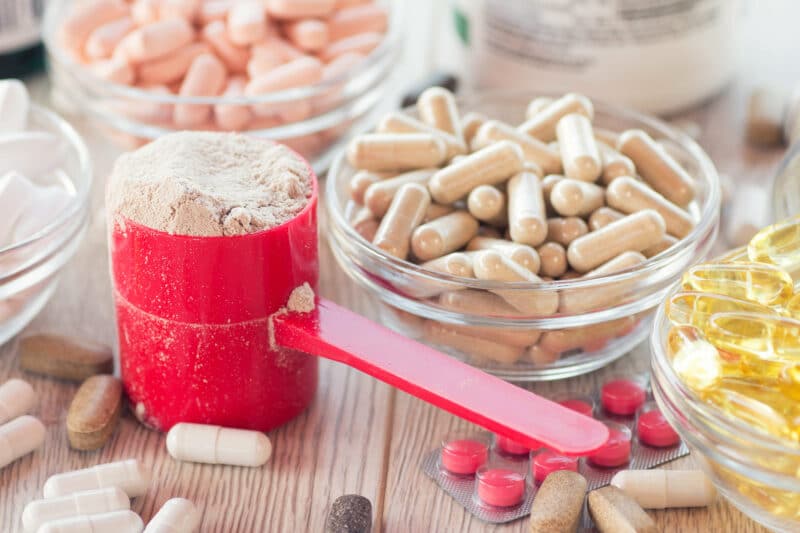
Build Muscle Naturally – Supplements
In theory, you should be able to obtain all of the nutrients and energy you require from your diet. However, this can be difficult even with best conceived nutrition plans. Consequently, there is now a vast array of supplements on the market promising a host of benefits, which can be somewhat bewildering and raises many questions, such as:
What do they do?
Is there are any science to support their use?
Do I need them?
You can find the answer to these questions and more by just clicking here:

Build Muscle Naturally – Sleep
An important but often overlooked component of a complete muscle building programme is sleep. It is during this time that the body recovers from the exertions of the day and adapts to the exercise that it has been subjected to, making us fitter, stronger and leaner. For example, testosterone and growth hormone are released while we sleep.
But how much sleep do you need to optimise muscle growth?
What causes poor sleep?
What can you do to improve your sleep?
Are there any natural remedies to aid sleep?
You can find the answer to these questions and more by just by clicking here:
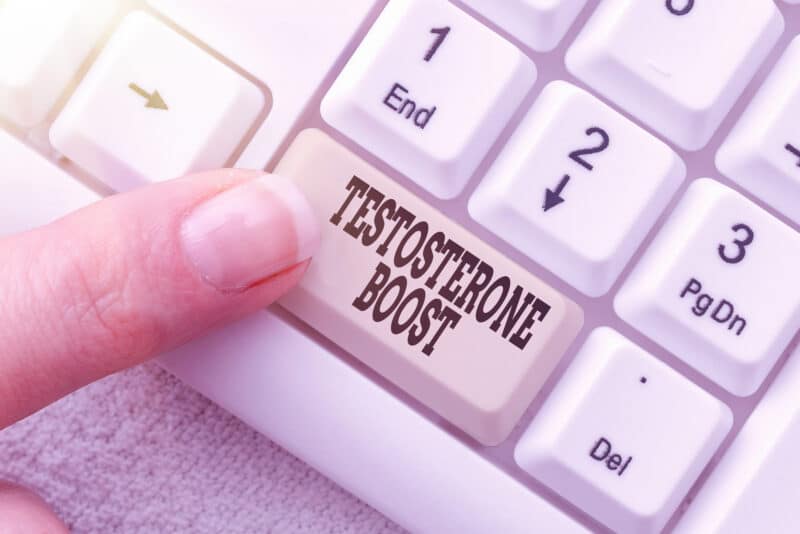
Build Muscle Naturally – Optimising your hormone profile?
To maximise your muscle growth, you need to optimise your levels of the key muscle building hormones growth hormone and testosterone, but how can you do you this?
Are there lifestyle factors that you can manipulate to increase hormone levels?
Can you adjust your training programme to increase production?
Are there any natural substances that have been shown scientifically to help boost levels?
You can find the answer to these questions and more by just by clicking here:
Once you have taken a close look at your diet, lifestyle and training, and addressed any issues, you may be pleasantly surprised to learn that you’re not a hardgainer after all.
